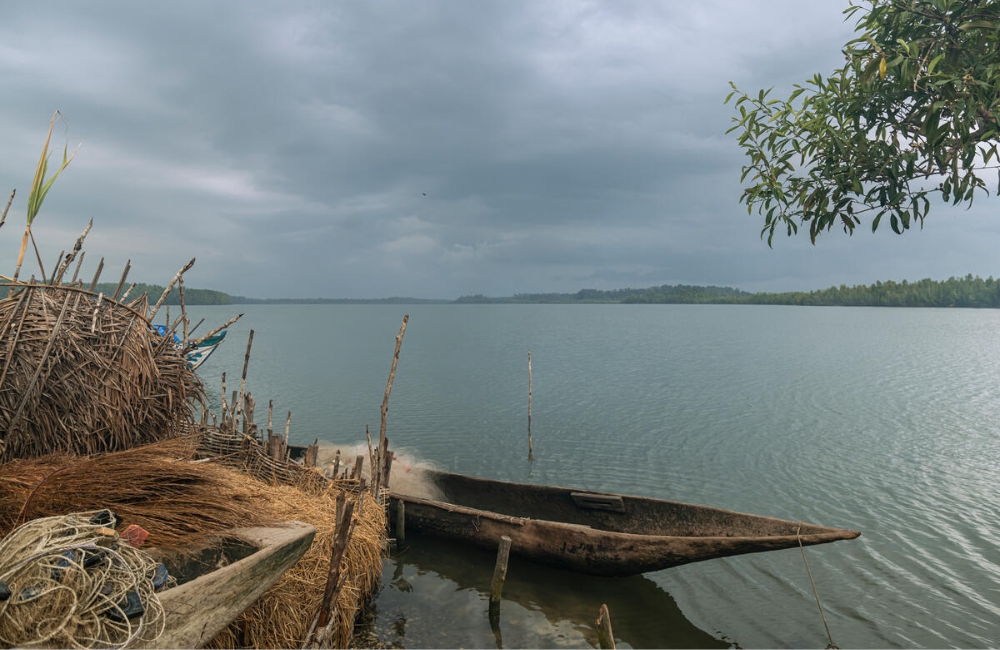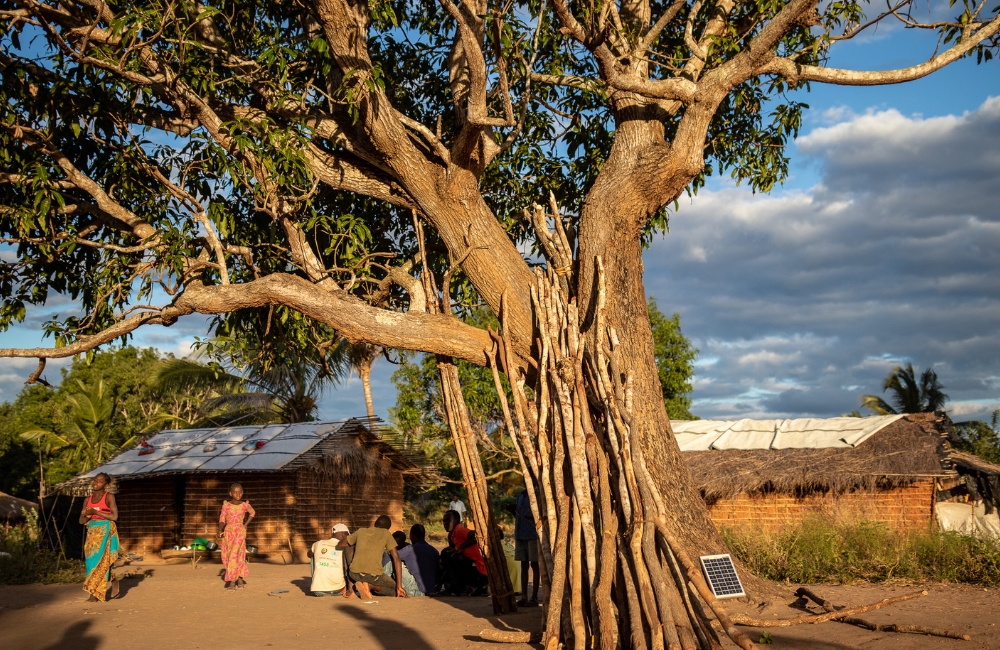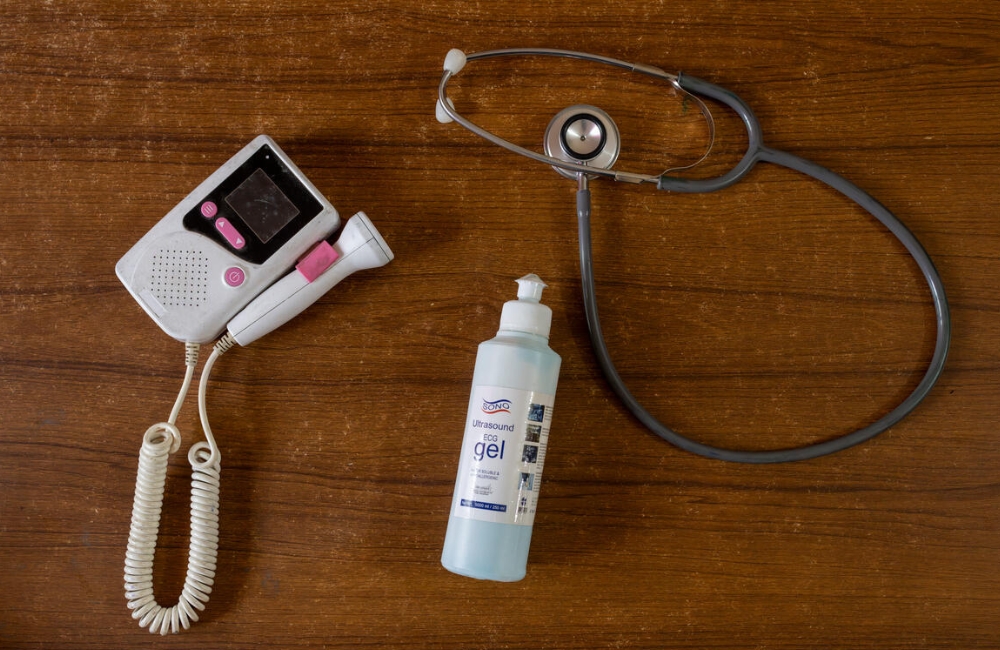VCCRP is primarily financed by the Green Climate Fund, with co-financing from the Department of Foreign Affairs and Trade in Australia and Save the Children, and in-kind support from the Government of Vanuatu.





Solomon Islands: Knowledge, Action, Sustainability for Resilient Villages
Solomon Islanders face intensifying climate challenges, including rising sea levels, frequent disasters, and disrupted food systems. These impacts threaten safety, education, and livelihoods in rural and remote communities.
The Knowledge, Action, Sustainability for Resilient Villages (SOLKAS) project is helping 170 communities across six provinces adapt to these threats. The project is laying the foundation for sustainable development by fostering climate adaptation planning in schools and communities, strengthening food security and climate-resilient livelihoods, and empowering young people with entrepreneurial opportunities. Innovative tools like the Digital Climate Risk Assessment and Adaptation Planning system are enabling both communities and governments to assess climate risks and plan effectively.
Directly supporting 185,000 people and indirectly reaching an additional 277,000, SOLKAS is equipping Solomon Islanders with the tools, skills, and resources they need to build a more sustainable and secure future.

Young Solomon Islanders are being supported to think innovatively about theclimate-proof jobs of tomorrow.
Photo: Connor Ashleigh / Save the Children.
SOLKAS is primarily financed by the Green Climate Fund, with co-financing support from the Australian Department of Foreign Affairs and Trade and the New Zealand Ministry of Foreign Affairs and Trade, and in-kind support from the Government of Solomon Islands.
The project is delivered in partnership with the Ministry of Environment, Climate Change, Disaster Management and Meteorology; the Ministry of Agriculture and Livestock; Ministry of Provincial Government and Institutional Strengthening; Ministry of Education and Human Resources Development; Ministry of Fisheries and Marine Resources; and the Ministry of Women, Youth, Children and Family Affairs.





Sierra Leone: Coastal Resilience Project
Sierra Leone’s coastal communities are on the frontlines of the growing climate crisis. Rising temperatures, extreme weather, and ecosystem degradation are threatening the lives of families who depend on farming and fishing to make ends meet. Vulnerable children and their families are being forced to make impossible choices, as floodwaters threaten homes and fertile land, and food insecurity spreads.
The Sierra Leone Coastal Resilience project is empowering 75 communities across five districts to adapt and thrive despite these challenges. Through locally-led interventions, the project is strengthening governance, introducing climate-resilient farming and fishing practices, restoring 1,500 hectares of vital mangroves, and upgrading water, sanitation, and hygiene infrastructure. It also ensures that schools are teaching climate education and disaster preparedness to equip the next generation to face an uncertain future.
With the goal of directly impacting 260,000 people and indirectly benefiting one million more, the project is building inclusive, sustainable resilience for Sierra Leone’s most vulnerable coastal populations.

Restoring and protecting coastal ecosystems like this one in Sierra Leone is a vital step in defending against
the impacts of climate change everywhere.
Photo: Yagazie Emezi / Save the Children.
This project is primarily financed by the Green Climate Fund, with co-financing support from Clifford Chance, Jersey Overseas Aid, and the Government of Sierra Leone.
The project is delivered in partnership with the Environmental Protection Agency of Sierra Leone, Kaddro, Concern Worldwide, Conservation Society of Sierra Leone, and the Environment Foundation for Africa Sierra Leone.


Mozambique: Linking Climate Adaptation and Social Protection
Mozambique faces escalating climate challenges, including severe droughts and erratic rainfall, which threaten food and water security for rural communities. Vulnerable groups, especially women and children can have limited access to resources and support systems and are disproportionately affected.
The Linking Climate Adaptation and Social Protection (LINK) project is strengthening climate resilience by integrating climate adaptation measures into Mozambique’s social protection programs. Working in nine districts across three provinces, LINK combines Local Adaptation Plans with the Productive Social Action Program to implement drought-resistant farming practices, enhance water management, and develop sustainable livelihoods. These locally led actions are supported by policy updates and capacity building with government to embed climate resilience into planning and budgeting processes.
Over the course of the project, more than 414,000 people will directly benefit, and 559,000 more will be reached. LINK creates sustainable pathways to improve food security, better income generation, and strengthen resilience for Mozambique’s most vulnerable communities.

LINK is helping safeguard some of Mozambique's most vulnerable people by integrating climate adaptation measures
into the country's social protection programs.
Photo: Sacha Myers / Save the Children.
LINK is primarily financed by the Green Climate Fund, with co-financing support from Save the Children Italy, The Norwegian Agency for Development Cooperation (NORAD), the Government of Mozambique Ministry of Land and Environment, and AEROMAPS.


Laos: Strengthening Climate Resilience
Laos faces increasing climate-related health risks, with rising temperatures, erratic rainfall, and frequent extreme weather events threatening rural communities and an already vulnerable health system. The impacts include damaged infrastructure, disruptions to water and sanitation services, and rising disease burdens, exacerbating inequalities for the country’s most marginalised populations.
The Strengthening Climate Resilience of the Laos Health System project is addressing these challenges by building a climate-resilient health system. Through national-level policy development and intensive support in 25 vulnerable districts, the project is upgrading infrastructure in 79 health facilities, enhancing health worker training, and enabling 250 communities to implement locally led health resilience plans. These efforts help improve preparedness for climate-related health impacts while fostering sustainable development.
1.85 million people will directly benefit from the project’s interventions, and 470,000 more will be reached thanks to its initiatives. The project empower communities and the health system to anticipate, manage, and mitigate the effects of climate change on healthcare, creating a replicable model for low-income countries.

Building a climate-resilient health system will help ensure Laotian children grow up healthy, happy and strong.
Photo: Fatima Tuj Johora / Save the Children.
Strengthening Climate Resilience is primarily financed by the Green Climate Fund, with co-financing support from the Government of Lao PDR and the World Health Organization.


Malawi: Climate Resilient Health and Wellbeing for Rural Communities
Malawi faces severe climate impacts, including rising temperatures, changing rainfall patterns, and extreme weather events like droughts and floods, which exacerbate health challenges such as malaria, diarrheal diseases, and malnutrition. These risks are compounded by poverty, gender inequality, and insufficient climate-resilient health infrastructure.
The Climate Resilient Health and Wellbeing for Rural Communities project is strengthening health systems in six vulnerable districts in southern Malawi. This holistic initiative integrates early warning systems, upgrades healthcare and water, sanitation and hygiene infrastructure, trains healthcare workers to address climate risks, and empowers 500 communities to develop locally led climate resilience plans. By enhancing institutional, healthcare, and community capacity, the project builds sustainable health solutions to mitigate climate impacts.
Directly benefiting more than 1.7 million people and indirectly reaching over 2.3 million more, this project combines national, district, and community interventions to ensure vulnerable populations can anticipate, adapt to, and recover from climate-health challenges.

By combining innovative approaches and local expertise, communities are building resilience to climate hazards.
Photo: Rachel Tarsan / Save the Children.
This project is primarily financed by the Green Climate Fund, with co-financing support from Foundation S – Sanofi, GSK, FCDO, the Government of Malawi, and the Moondance Foundation.
The project is delivered in partnership with Catholic Health Commission of Malawi (CHC) and Creative Centre for Community Mobilisation Malawi.


Combining innovation, collaboration, and locally led solutions
Through these transformative initiatives supported by the Green Climate Fund and implemented by Save the Children in partnership with governments and local communities, we are creating a more resilient and equitable future for some of the world’s most climate-vulnerable populations. From empowering children and families to withstand the devastating impacts of climate change to strengthening systems that protect livelihoods, health, and education, these projects are proving that meaningful change is not only achievable, it’s already happening.
For further information, contact climate@savethechildren.org.au.